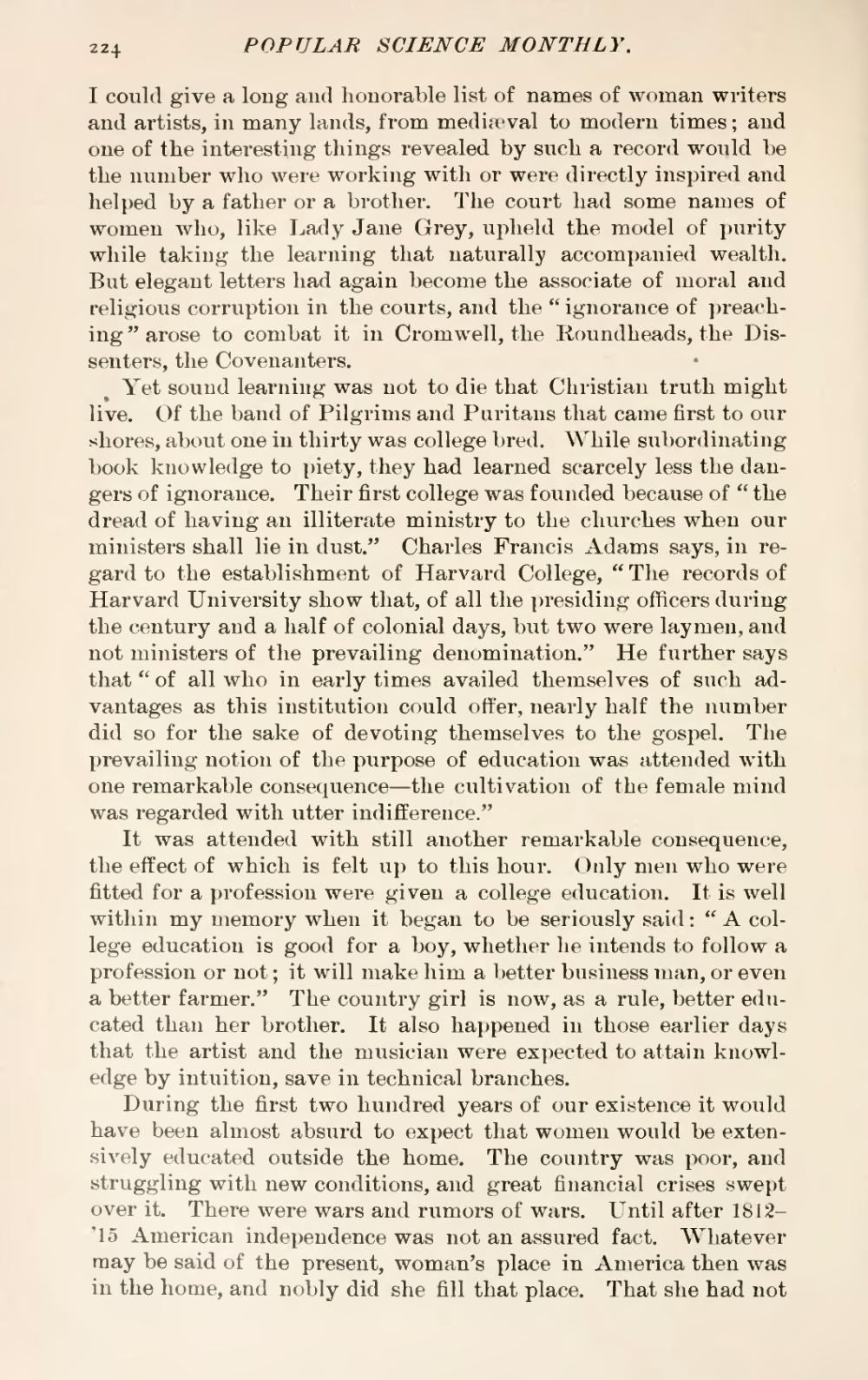I could give a long and honorable list of names of woman writers and artists, in many lands, from mediæval to modern times; and one of the interesting things revealed by such a record would be the number who were working with or were directly inspired and helped by a father or a brother. The court had some names of women who, like Lady Jane Grey, upheld the model of purity while taking the learning that naturally accompanied wealth. But elegant letters had again become the associate of moral and religious corruption in the courts, and the "ignorance of preaching "arose to combat it in Cromwell, the Roundheads, the Dissenters, the Covenanters.
Yet sound learning was not to die that Christian truth might live. Of the band of Pilgrims and Puritans that came first to our shores, about one in thirty was college bred. While subordinating book knowledge to piety, they had learned scarcely less the dangers of ignorance. Their first college was founded because of "the dread of having an illiterate ministry to the churches when our ministers shall lie in dust." Charles Francis Adams says, in regard to the establishment of Harvard College, "The records of Harvard University show that, of all the presiding officers during the century and a half of colonial days, but two were laymen, and not ministers of the prevailing denomination." He further says that "of all who in early times availed themselves of such advantages as this institution could offer, nearly half the number did so for the sake of devoting themselves to the gospel. The prevailing notion of the purpose of education was attended with one remarkable consequence—the cultivation of the female mind was regarded with utter indifference."
It was attended with still another remarkable consequence, the effect of which is felt up to this hour. Only men who were fitted for a profession were given a college education. It is well within my memory when it began to be seriously said: "A college education is good for a boy, whether he intends to follow a profession or not; it will make him a better business man, or even a better farmer." The country girl is now, as a rule, better educated than her brother. It also happened in those earlier days that the artist and the musician were expected to attain knowledge by intuition, save in technical branches.
During the first two hundred years of our existence it would have been almost absurd to expect that women would be extensively educated outside the home. The country was poor, and struggling with new conditions, and great financial crises swept over it. There were wars and rumors of wars. Until after 1812–’15 American independence was not an assured fact. Whatever may be said of the present, woman's place in America then was in the home, and nobly did she fill that place. That she had not

